Related Research Articles

The Irish War of Independence or Anglo-Irish War was a guerrilla war fought in Ireland from 1919 to 1921 between the Irish Republican Army and British forces: the British Army, along with the quasi-military Royal Irish Constabulary (RIC) and its paramilitary forces the Auxiliaries and Ulster Special Constabulary (USC). It was part of the Irish revolutionary period.

The Irish Army, known simply as the Army, is the land component of the Defence Forces of Ireland. Approximately 7,300 people served in the Irish Army on a permanent basis as of May 2016, and there were 1,600 active reservists, divided into two geographically organised brigades. As well as maintaining its primary roles of defending the State and internal security within the State, since 1958 the Army has had a continuous presence in peacekeeping missions around the world. The Army also participates in the European Union Battlegroups. The Air Corps and Naval Service support the Army in carrying out its roles.
In Ireland, the National Day of Commemoration commemorates all Irish people who died in past wars or United Nations peacekeeping missions. It occurs on the Sunday nearest 11 July, the anniversary of the date in 1921 that a truce was signed ending the Irish War of Independence. The principal ceremony is held at the Royal Hospital Kilmainham, Dublin, Ireland.

The Naval Service is the maritime component of the Defence Forces of Ireland and is one of the three branches of the Irish Defence Forces. Its base is in Haulbowline, County Cork.
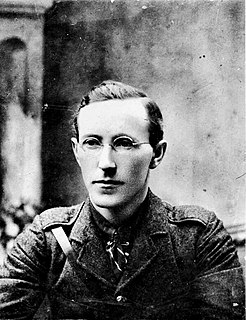
Liam Lynch was an officer in the Irish Republican Army during the Irish War of Independence of 1919-1921. During much of the Irish Civil War, he was chief of staff of the Irish Republican Army. On 10 April 1923, Lynch was killed whilst trying to escape an encirclement by Free State troops in south Tipperary.
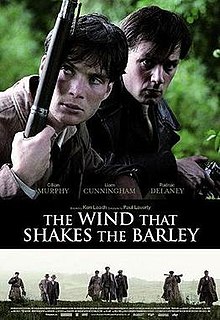
The Wind That Shakes the Barley is a 2006 war drama film directed by Ken Loach, set during the Irish War of Independence (1919–1921) and the Irish Civil War (1922–1923). Written by long-time Loach collaborator Paul Laverty, this drama tells the fictional story of two County Cork brothers, Damien O'Donovan and Teddy O'Donovan, who join the Irish Republican Army to fight for Irish independence from the United Kingdom.
In the Siege of Jadotville[ʒa.do.vil] in September 1961, a small contingent of Irish troops, designated "A" Company, serving as part of the United Nations Operation in the Congo were besieged in the mining town of Jadotville by Katangese forces loyal to the secessionist State of Katanga. The siege took place during the seven-day escalation of a stand-off between ONUC and Katangese forces during Operation Morthor. Although the contingent of 155 Irish soldiers repelled attacks by a 3,000-man Katangese force for five days while an undersized relief force of Irish, Indian and Swedish troops attempted to reach them, they were eventually forced to surrender having run out of ammunition and water. "A" Company was subsequently held as prisoners of war for approximately one month. Despite inflicting approximately 1,300 casualties on the attacking force, with no deaths amongst "A" Company, and surrendering only after running out of ammunition, it would be more than half a century before Ireland acknowledged the bravery and achievements of the vastly outnumbered Irish soldiers at the Siege of Jadotville.
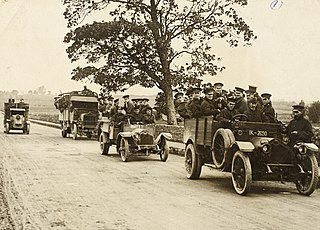
This is a timeline of the Irish War of Independence of 1919–21. The Irish War of Independence was a guerrilla conflict and most of the fighting was conducted on a small scale by the standards of conventional warfare.

Collins Barracks is a military barracks on the Old Youghal Road on the north side of Cork in Ireland. Originally serving as a British military barracks from the early 19th century, it was handed-over to the Irish military following the Irish War of Independence, and remains the headquarters of the 1st Brigade of the Irish Army. A museum in the barracks is open to the public at selected times.

The Infantry Corps (INF) is the largest component of the Irish Army. Infantry soldiers are regarded as operational troops who must be prepared for tactical deployment in any location at short notice. In wartime, this means that they will be among the front line troops in the defence of the State. In peacetime however they can be seen daily performing operational duties in Aid to the Civil Power (ATCP) such as providing escorts to cash, prisoner or explosive shipments, patrols of vital state installations and border patrols, including check points.

Cathal Brugha Barracks is an Irish Army barracks in Rathmines, Dublin. A key military base of the Irish Defence Forces, it is the headquarters of 2 Brigade, and houses the Military Archives of the Department of Defence.

The 27 Infantry Battalion is one of the seven infantry battalions of the Irish Army. The battalion was established on 1 September 1973 and forms part of the 2nd Brigade. The Battalion Headquarters is at Aiken Barracks, in Dundalk, County Louth.
In April 1980, three Irish Army peacekeeping soldiers serving with the United Nations Interim Force in Lebanon (UNIFIL) were shot by the South Lebanon Army also known as the DFF, near At Tiri, in the South Lebanon security belt, two of whom died and one was seriously injured.
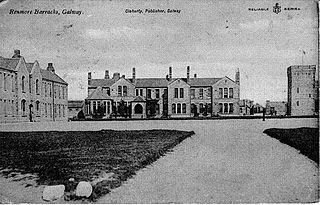
Renmore Barracks is a military installation in Renmore, Ireland
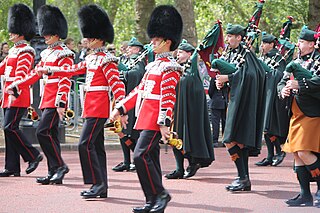
Irish in the British Armed Forces refers to the history of Irish people serving in the British Armed Forces. Ireland was then as part of the United Kingdom from 1800 to 1922 and during this time in particular many Irishmen fought in the British Army. Different social classes joined the military for various reasons, including the Anglo-Irish officers who thoroughly wished to support the "mother country", while others, typically poorer Irish Catholics, did so to support their families or seeking adventure. Many Irishmen and members of the Irish diaspora in Britain and also Ulster-Scots served in both World War I and World War II as part of the British forces. However, especially since the advent of Irish independence and The Troubles, the topic of enlistment in the British forces has been controversial for the Irish at home, but does still occur. Since partition, Irish citizens have continued to have the right to serve in the British Army, reaching its highest levels since World War II in the 1940s.

Thomas Martin Clonan is an Irish senator, security analyst, author and retired Irish Army Captain. He was elected to Seanad Eireann in March 2022 in the 2022 Dublin University by-election.

The Irish Defence Forces School of Music is established as a Corps of the Irish Defence Forces and has responsibility for the maintenance and training of the three military bands of the Defence Forces. It contains a directorate and a headquarters and three detached military bands. The 97 members of the three bands currently perform at approximately 500 state, military and civilian events annually.
Lt. Col. Richard Brennan is a Barrister-at-Law in the Legal Service of the Irish Defence Forces (IDF) and former National Legal Advisor to the IDF during United Nations peacekeeping operations as a United Nations Military Observer. He is a legal scholar on international humanitarian law and the legal basis of peacekeeping missions.
References
- ↑ 'Are we prepared? We are not': Brexit hard border warning from former Troubles soldier' TheJournal.ie (Dublin, 2 October 2018)
- ↑ 'The serving and sacrifice Irish soldiers put in during the Troubles - it has never been recognised' TheJournal.ie (Dublin, 7 October 2018)
- ↑ 'Irish Tuesdays: Dan Harvey « The D-Day Irish – A Hidden History »' SOFEIR (accessed 30 October 2018)
- ↑ The Wind That Shakes the Barley 'Full cast and crew', IMDB.
- ↑ 'Troops pay respects on the last journey home' The Irish Times (Dublin, 23 October 1999)